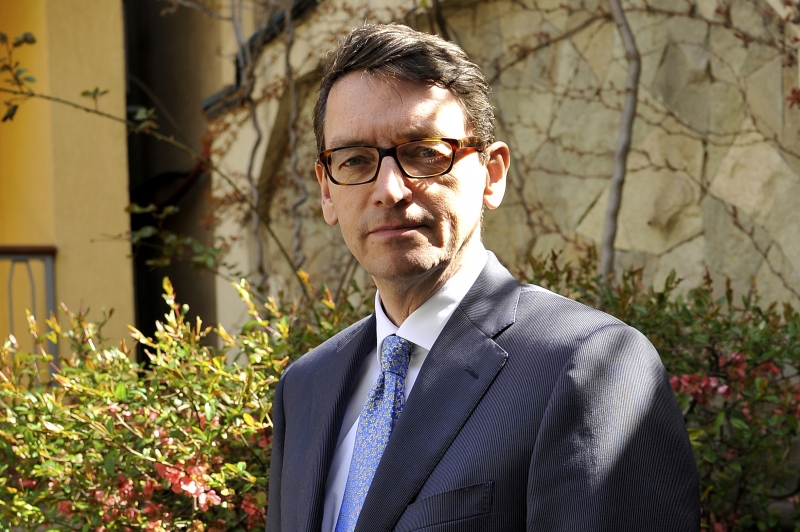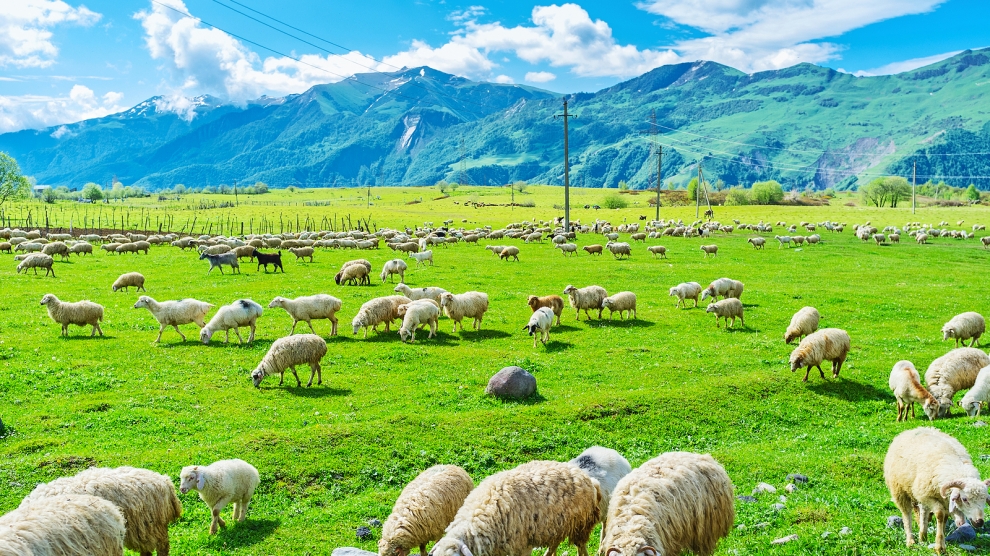Jan van Bilsen, IFC Regional Manager for the South Caucasus, talks to Andrew Wrobel about Georgia’s great potential, as well as some of the challenges it still faces.
IFC has been in Georgia for over two decades. In which areas have you been active over the years?
Here in Georgia we have been quite active in the financial sector, doing what we can to make sure that it is stable. A stable financial sector is an important base for the economic climate of the country. We began the relationship 22 years ago and we’ve been working with large banks, some small banks and microfinance banks. As we do not deal with smaller companies ourselves directly, we use the banks as vehicles. We provide the funding. We also provide them with technical assistance. We also support the financial sector through capital market development.
With our colleagues at the World Bank, we also focus on the public sector. We work quite closely with the World Bank as we’re developing the capital markets further, in terms of pension reform. We know what is needed for capital market development. You need to have a local institutional investor base, and that is done by means of pension companies, pension funds, insurance companies and such like.

What is the situation of small and medium enterprises in the country and what are their challenges?
The broader context is that Georgia has progressed a lot over the past decade. The government is very business friendly. A lot of improvements have been made in terms of investment climate. Therefore, the economy is growing. We see that it’s increasing the appetite to do business in the country not only from Georgians themselves, but also from overseas. There is clearly a positive feeling at the moment towards Georgia that the government is making use of.
What we think is needed for Georgia to develop further is to focus more on exports. Studies on development have shown that there is no country in the world with a population of 10 million people that has managed to achieve middle income status without having at least 50 per cent of GDP represented by exports. Georgia is currently exporting around 43 per cent of GDP.
Once exports increase the country will continue to grow further and to improve standards of living, and therefore reduce poverty and everything that accompanies that. They need to increase exports, and they’re working on it.
But for that to happen — now that I have put it a bit into context — the country needs to improve on productivity. It needs to make sure it has a more competitive business sector. They also need to offer international standards. There are only certain sectors in which this is happening, while the other sectors still have room to grow into that sense.
SMEs are particularly important here. It’s not only the large corporations: that is where we come in. You need to stimulate the activity and economic direction of the country. Not only for the large hydro power projects – attracting the foreign direct investment for that is of course important — but it is even more important to stimulate the SMEs, and they need to be encouraged not just in the cities but in rural areas. Rural development is also a challenge.
The SMEs themselves have indicated that access to finance is the main obstacle. That’s why it is so crucial that the banks need to secure their own funding base.
What about entrepreneurial spirit? I have heard a couple of people saying that in rural areas especially it’s tough to convince people to stay and develop their own businesses. They would rather move to Tbilisi or other bigger cities.
I think that statement is true, but at the same time it’s probably not a lot different from what you see in other countries as well. People move into the cities. What the government needs to do is improve infrastructure, because in order to stimulate entrepreneurship in the rural areas you must make sure that there are good connections to those areas.
Then you have to teach the locals skills, creating a labour force if there is a mismatch between demand and supply. Then we need to improve education, making sure that people have an understanding of what it means to do business. Entrepreneurship increases with a higher level of skills and education. In the agricultural sector, food processing needs development. There’s no reason to process food in the cities: it can be done in the rural areas where the agri-production takes place. But then this, of course, feeds back into the point about infrastructure. You must make sure that you can get around easily. The point is that in order to stimulate entrepreneurship and SMEs, all sorts of things are needed. It goes beyond access to finance.
When it come to exports, which you have said are crucial to development, how do you think the Association Agreement with the EU will help? Are Georgian companies – such as the food producers that we were talking about – actually ready to start exporting to the EU?
Some of them are, but more work needs to be done, not least with infrastructure, which keeps cropping up. Other things which are important – not least with food – include food safety standards. These need to be at high enough levels for the EU. We are currently advising agribusiness companies on food safety precisely for this reason.
Another area crucial to the agricultural sector in general is the integration of the value chain. For companies active in the agricultural sector, it is important to look not only at a standalone, isolated business but to see that they feed into a whole value chain. That includes areas such as investor protection, which they need to have. It’s to get the growth into the skilled work force.
Then there is marketing and logistics. This needs to improve for the Georgian agri-business sector to be more successful at exporting. This applies not just to exports for the EU but to all exports.
The good thing about Georgia that you notice is that the government is receptive. You can have meetings with them and say, “We think this is needed,” and then they are out there and willing to listen and accommodate, and see what is needed. In terms of that, I would say Georgia is way ahead of most other countries.
Georgia realises that before exports to the European Union can increase, they need to work on promoting their products. We are also working on promoting Georgia — there’s a lot of work going on.
What do you think has made Georgia so open to business, and so pro-European when compared with the other two countries in the region?
I think history has a lot to do with it. My take on it is that there is clearly a correlation between having a transparent and open business environment and government, and having an industrial sector open for private business, or the private sector, in a competitive manner. In a number of other former Soviet Union countries, and other countries around the globe, this part of the economy is not evolving. That does not stimulate competition. That does not stimulate entrepreneurship.
I’m sure the Georgians have their own interpretation and can judge this better. But in my view, the changes that have happened in Georgia since the Rose Revolution of 2003 have been big. The level of corruption has been scaled back to an incredibly low level. Beforehand it was everywhere. Having that openness and not having a business sector dominated by oligarchs, and having a basic connection between business and the private sector, creating an environment of openness, that really helps.
In a country where the majority of business sectors are controlled, there is little competition. In such countries entrepreneurship is not stimulated. You will fall behind.
Georgia has realised this. It’s opening up the private sector on all fronts. That’s what you see the government saying time and again. The public sector is there to support, but not to lead the economy.
My final question is about regional integration, with Georgia as a transport or logistics hub, a part of the so-called the New Silk Road or One Belt One Road Initiative. How do you see the potential here?
There is clearly potential, because of the location of Georgia between Europe and Asia, and because of the need for alternative transport routes that do not pass through Russia. What is needed is good infrastructure and cooperation between nations in order to transport goods easily from east to west. Or vice versa. Georgia is in contact with China, with the Chinese government, and will encourage Chinese and other Asian companies to set up assembly or manufacturing plants here.


Add Comment